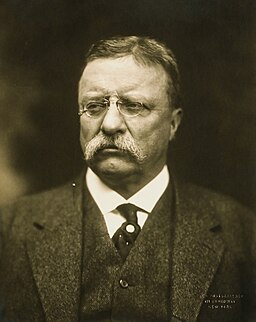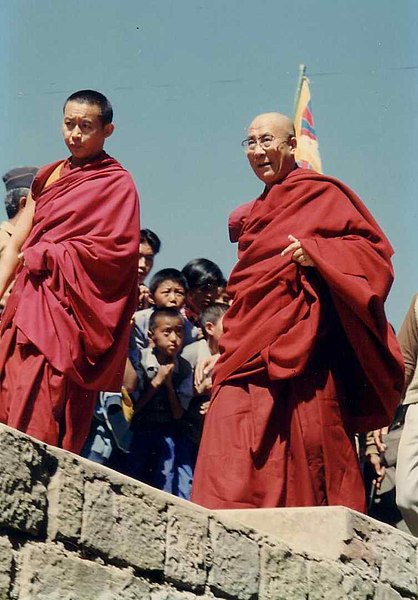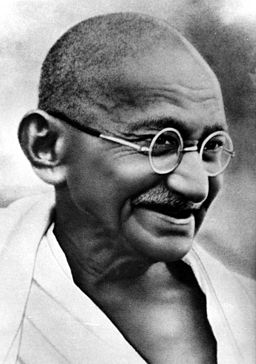The flight also carried the grandfather of my author friend,
M.C.V. Egan. Here is my review
her book, Bridge
of Deaths. To commemorate the event
and her commitment to peace, Catalina and Innovative Online Book Tours have organized
a Peace Hop Blitz
today, involving many bloggers from around the world posting about peace. I welcomed the opportunity to participate.
For several days, I have been asking myself what I have to
say about peace. The image comes to mind
of Sandra Bullock's character, in the film Miss
Congeniality, answering her beauty pageant scholarship program interview
question, “If you could have one wish, what would you wish for?” (or something to that effect) with,
“stronger penalties for multiple offenders . . . [dead air] . . . and
world peace.”*
What does that mean?
More importantly, where does it start?
How does it happen? Who do we
blame when it doesn’t?
I believe world peace doesn’t start with diplomacy, police
actions, or even troop withdrawals.
Humanitarian efforts and national debt
forgiveness don’t hold the key. Stricter
laws, stronger penalties for criminals, and faster court processes are only
Band-aids on the wound. Better pay for
policy, teachers and other civil servants, higher educational standards, increased
school budgets, and improved social programs for the economically disadvantaged
all help, but, even in ideal circumstances where these things function
perfectly, they cannot solve the problem in and of themselves.
In my nearly fifty years of life experience, I have come to
understand that world peace starts here, in my own heart. It starts in the hearts of every man, woman
and child on earth. Not only do we all
share a moral obligation to eradicate the seeds of discord in ourselves, but we
must admit to ourselves that each one of us, as a single entity, have the power
to change a great deal around us.
Where do we start?
Ask yourselves these questions:
- Do I take responsibility for my own actions? Or to I blame others for the discord I cause?
 |
| Courtesy mormonnewsroom.org |
—Elder D. Todd Christopherson
- Am I honest with myself and others? Am I honorable?
“Think about the light and truth
that the shared value of honesty has in the Judeo-Christian world. Think about
the impact on society if youth didn’t cheat in school, if adults were honest in
the workplace and were faithful to their marriage vows. For us the concept of
basic honesty is grounded in the life and teachings of the Savior. Honesty is
also a valued attribute in many other faiths and in historic literature. The
poet Robert Burns said, “An honest man’s the noblest work of God.” 21 In almost every
instance, people of faith feel accountable to God for being honest.”
—Elder Quentin L. Cook
—Elder Quentin L. Cook
- Do I own my future? Do I feel empowered to alter my environment? Or do I surrender to fate and wander wherever the wind blows me?
“We must become the change we want
to see.”
“You may never know what results come of your action, but if you do nothing there will be no result”
— Mahatma Ghandi
“You may never know what results come of your action, but if you do nothing there will be no result”
— Mahatma Ghandi
- Do I respect the opinions of others? Do I acknowledge their rights to their own opinions?
“Laws alone cannot secure freedom
of expression; in order that every man present his views without penalty there
must be spirit of tolerance in the entire population.”
― Albert Einstein
― Albert Einstein
- Do I respect religious beliefs that differ from my own? Or do scoff and denigrate what others hold sacred? Do I deny their right to those beliefs?

“It does me no injury for my
neighbor to say there are 20 gods, or no god. It neither picks my pocket nor
breaks my leg.”
― Thomas Jefferson
― Thomas Jefferson
“Wide differences of opinion in
matters of religious, political, and social belief must exist if conscience and
intellect alike are not to be stunted, if there is to be room for healthy
growth.”
― Theodore Roosevelt, The Man In The Arena: Speeches and Essays by Theodore Roosevelt
― Theodore Roosevelt, The Man In The Arena: Speeches and Essays by Theodore Roosevelt
- Can I walk away from an argument? Do I insist on being right, rather than happy? Can I agree to disagree?
“When you plant lettuce, if it does
not grow well, you don't blame the lettuce. You look for reasons it is not doing
well. It may need fertilizer, or more water, or less sun. You never blame
the lettuce. Yet if we have problems with our friends or family, we blame
the other person. But if we know how to take care of them, they will grow
well, like the lettuce. Blaming has no positive effect at all, nor does
trying to persuade using reason and argument. That is my experience. No
blame, no reasoning, no argument, just understanding. If you understand,
and you show that you understand, you can love, and the situation will
change”
― Thich Nhat Hanh
― Thich Nhat Hanh
“You see, a conflict always begins
with an issue - a difference of opinion, an argument. But by the time it turns
into a war, the issue doesn't matter anymore, because now it's about one thing
and one thing only: how much each side hates the other.”
― Neal Shusterman, Unwind
― Neal Shusterman, Unwind
- Can I compromise?
“Men were put into the world to
teach women the law of compromise. ”
― Jane Austen
― Jane Austen
“Life is a compromise of what your
ego wants to do, what experience tells you to do, and what your nerves let you
do.”
― Walter Bagehot
― Walter Bagehot
- Do I respect other races, religions, creeds and cultures?
“If man is to survive, he will have
learned to take a delight in the essential differences between men and between
cultures. He will learn that differences in ideas and attitudes are a delight,
part of life's exciting variety, not something to fear.”
― Gene Roddenberry
― Gene Roddenberry
- What do I do with my anger? Do I consciously dispel it? Or, do I pass it on to those around me?
 |
| Image by John Hill (en:John Hill) in 1994. from Wikimedia.org |
“Anger is the enemy of non-violence and pride is a monster that swallows it up.”
― Mahatma Gandhi
"Self-discipline, although difficult, and not always easy while combating negative emotions, should be a defensive measure. At least we will be able to prevent the advent of negative conduct dominated by negative emotion. That is 'shila', or moral ethics. Once we develop this by familiarizing ourselves with it, along with mindfulness and conscientiousness, eventually that pattern and way of life will become a part of our own life."
― His
Holiness the Dalai Lama, from Live in
a Better Way: Reflections on Truth, Love and Happiness, available
from Snow Lion Publications.
- Do I love unconditionally? Can I separate the person from their actions and choices? Can I love those who act contrary to my beliefs?
“There is within each one of us a
potential for goodness beyond our imagining; for giving which seeks no reward;
for listening without judgment; for loving unconditionally.”
― Elisabeth Kübler-Ross
― Elisabeth Kübler-Ross
"Before we can generate
compassion and love, it is important to have a clear understanding of what we
understand compassion and love to be. In simple terms, compassion and
love can be defined as positive thoughts and feelings that give rise to such
essential things in life as hope, courage, determination, and inner strength.
In the Buddhist tradition, compassion and love are seen as two aspects of the
same thing: Compassion is the wish for another being to be free from
suffering; love is wanting them to have happiness."
- What do I believe in? Do I truly live the tenets of my religion?
“But because of faith, I have seen
a mountain of doubt and despair removed and replaced with hope and optimism.
Because of faith, I have personally witnessed a mountain of sin replaced with
repentance and forgiveness. And because of faith, I have personally witnessed a
mountain of pain replaced with peace, hope, and gratitude. Yes, I have seen
mountains removed.”
― Bishop Richard C. Edgley
― Bishop Richard C. Edgley
“Now a clearly maintained
distinction between what the Faith actually says and what you would like it to
have said or what you understand or what you personally find helpful or think
probable, forces your audience to realize that you are tied to your data just
as the scientist is tied by the results of the experiments; that you are not
just saying what you like. This immediately helps them realize that what is
being discussed is a question about objective fact — not gas about ideals and
points of view.”
― C.S. Lewis, Mere Christianity
― C.S. Lewis, Mere Christianity
- Do I sacrifice my comforts, time, or opinions for the good of others?
“It is a far, far better thing that
I do, than I have ever done; it is a far, far better rest that I go to than I
have ever known.”
― Charles Dickens, A Tale of Two Cities
― Charles Dickens, A Tale of Two Cities
“The really important kind of freedom
involves attention, and awareness, and discipline, and effort, and being able
truly to care about other people and to sacrifice for them, over and over, in
myriad petty little unsexy ways, every day.”
― David Foster Wallace, This is Water
― David Foster Wallace, This is Water
“Sacrifice is a part of life. It's supposed
to be. It's not something to regret. It's something to aspire to.”
― Mitch Albom
― Mitch Albom
- Do I provide service and charity with no thought of return?
 “Do not worry in the least about
yourself, leave all worry to God,' - this appears to be the commandment in all
religions. This need not frighten anyone. He who devotes himself to service with a clear
conscience, will day by day grasp the necessity for it in greater measure, and
will continually grow richer in faith. The path of service can hardly be
trodden by one who is not prepared to renounce self-interest, and to recognize
the conditions of his birth. Consciously or unconsciously, every one of us does
render some service or other. If we cultivate the habit of doing this service
deliberately, our desire for service will steadily grow stronger, and will make
not only for our own happiness but that of the world at large.”
“Do not worry in the least about
yourself, leave all worry to God,' - this appears to be the commandment in all
religions. This need not frighten anyone. He who devotes himself to service with a clear
conscience, will day by day grasp the necessity for it in greater measure, and
will continually grow richer in faith. The path of service can hardly be
trodden by one who is not prepared to renounce self-interest, and to recognize
the conditions of his birth. Consciously or unconsciously, every one of us does
render some service or other. If we cultivate the habit of doing this service
deliberately, our desire for service will steadily grow stronger, and will make
not only for our own happiness but that of the world at large.”― Mahatma Gandhi
In the film Serenity, the character Shepherd, a man
of religion, tells Mal, “I don’t care what you believe in. Just believe in something.”* I believe that
faith and hope open the door to peace. We
all need to believe ourselves accountable to someone. Whether we believe in Jesus Christ or the Jewish
tradition, in reincarnation or simply the energy of the universe, our
acknowledgement of a higher power and better possibilities gives us hope. Which in turn strengthens our faith. Which in turn expands our hope.
When we admit that each of us are an integral part of a
greater whole, and that whole allows us to be greater than we are, our actions
become important. We become
accountable. And only when we accept
responsibility for the things we do and the choices we make can we find inner peace. Not until then can we begin to influence the
world for good. Not until we each become
a small puddle of light, faith and hope, not until we accept responsibility for
it does the world have any chance for peace.
*(Unfortunately, the fact that I quote movies far more than I quote books is a sad commentary on the way I spend my time—either that, or the way my brain processes information.)
For more great essays on peace, visit all the blogs in the Peace Blitz Blog Hop.




2 comments:
I'm going to give you a buck for my thoughts on your lovely post, Penny. :) I could not agree with you more. Peace begins at home -in each individual's heart- and is the result of our actions. Your points about spirituality and faith made me think of arguments put to me by agnostic/atheist friends who accuse anyone of faith as being a fearful person who is buying insurance against fears of the after-life, as a panacea against anxiety. To that I have responded, I don't create, imagine or 'will' my Faith. It is. It was. It will be. My blessing has been to recognize and accept it as something inherent in me that is divine.
I know I will need to come back to this post many times as you have such wonderful examples and quotes.
I find that so many posts are in tune with the philosophy that the key is peace with one-self and that is so encouraging that the starting point is in essence something we should feel we have the power to accomplish....:)
Post a Comment